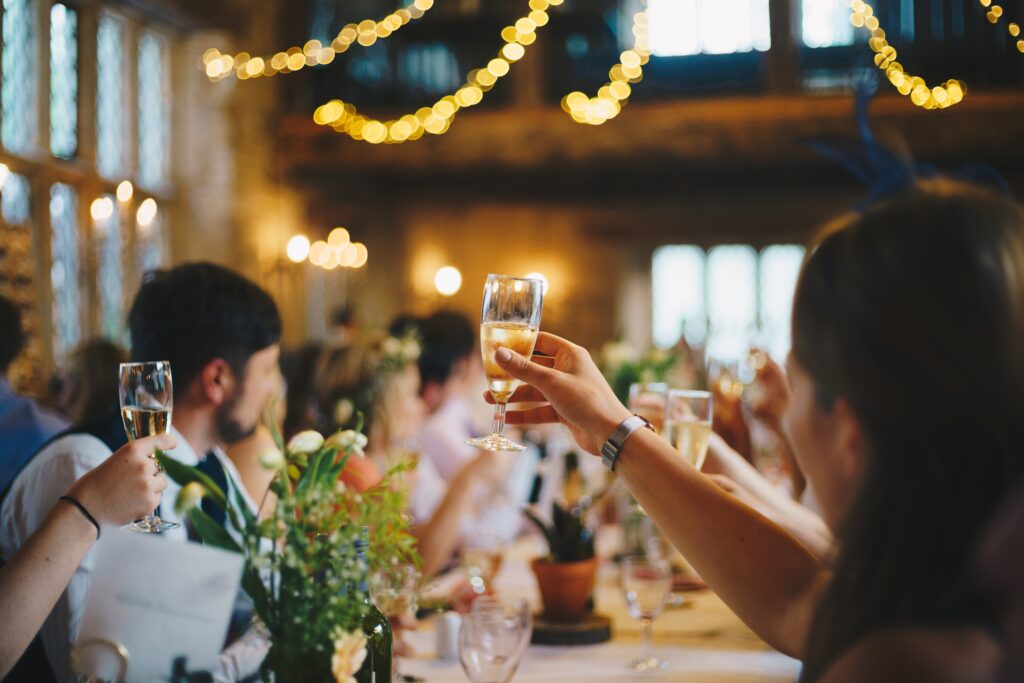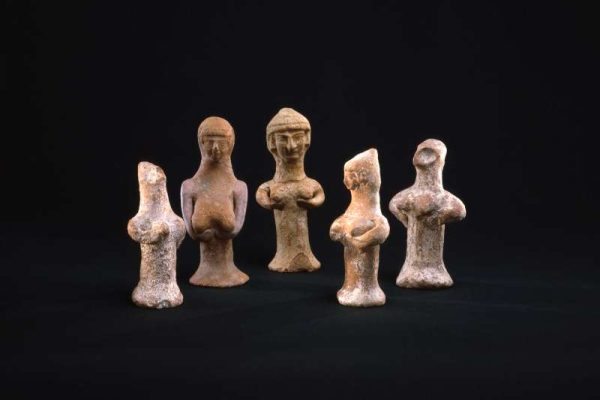Invitations usually specify dress code for a wedding. At a traditional wedding, women wear modest dress—nothing sleeveless, open-backed, or extremely short. Also, women—be careful about wearing white. Only do so if you are sure that the bride will be wearing a formal wedding dress and that you will not be mistaken for her.
At many Jewish weddings, all men will wear kippot during the ceremony, and at an egalitarian wedding women may choose to as well. Kippot are usually given out at the beginning of the wedding.
It is a mitzvahLit. Commandment. It is traditionally held that there are 613 mitzvot (plural) in Judaism, both postive commandments (mandating actions) and negative commandments (prohibiting actions). Mitzvah has also become colloquially assumed to mean the idea of a “good deed." to entertain the bride and groom and to make them happy on their wedding day. In a traditional Jewish wedding, the couple will sit in chairs while guests entertain them with all kinds of antics. Some come prepared with wigs, confetti, silly string, and the like. Creativity, however, is paramount. The couple and often their parents will usually be lifted up on chairs by guests as well.
Many couples register for gifts for their wedding. Some also designate specific charities to which contributions can be made. My advice—getA writ of divorce. Traditionally, only a man can grant his wife a get. Liberal Jews have amended this tradition, making divorce more egalitarian. something they can easily return (e.g., from a store local to the couple or a major department store) unless you know them incredibly well. That beautiful decorative bark from Zimbabwe that you just couldn’t resist shipping home might not be their taste at all. I advise staying away from artwork altogether—no one wants to feel that they have to hang a picture on the wall just to please the giver if they really don’t like it. Also, do not buy Judaica—silver kiddushThe prayer recited over wine on Shabbat, holidays, and other joyous occasions. cups, mezuzot, challahBraided egg bread eaten on Shabbat and holidays. Reminiscent of bread eaten by Priests in the Temple, of manna in the desert, and sustenance in general. Plural: Hallot boards, etc.—unless you are sure that this is something the couple will use and enjoy.












